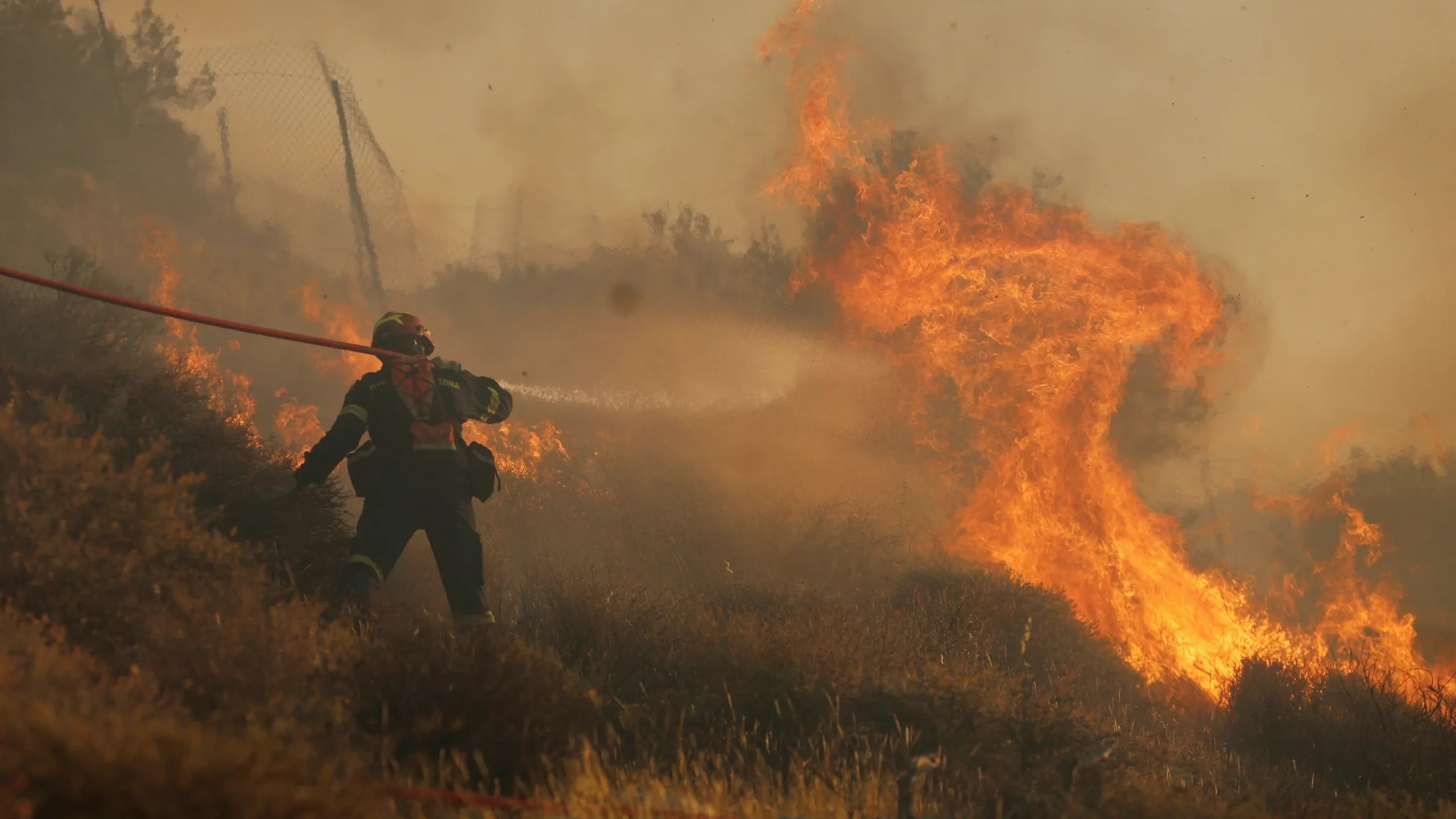Greece has been grappling with a series of wildfires this week, with the most severe outbreak taking place on the island of Crete, where approximately 5,000 people – 3,000 tourists and 2,000 locals – were evacuated overnight near the resort town of Ierapetra.
According to Yorgos Tzarakis, head of Crete’s hotel association, the evacuations were precautionary, moving people primarily to northern Crete.
Local officials, including Vice-Prefect Yannis Androulakis, noted that aerial firefighting efforts were hindered by strong winds and the island’s difficult terrain, complicating overnight operations. Wind speeds reportedly reached level 9 on the Beaufort scale, fanning the flames on multiple fronts.
Meanwhile, a separate blaze broke out on Thursday near Rafina, just 30 kilometres east of Athens. The fire destroyed several homes and vehicles before being brought under control.

More than 300 people were evacuated, and the port of Rafina was closed, disrupting ferry connections to the Cyclades. Smoke from the fire also delayed flights at Athens International Airport.
The National Observatory of Athens warned that July remains a high-risk month for wildfires, with the country experiencing increasingly frequent and intense blazes due to climate change. In 2024, Greece endured its hottest-ever summer, with 45,000 hectares of land scorched.
Across the Aegean in Turkey, two lives were lost as wildfires raged near Izmir, where intense winds and faulty power cables were blamed for the blazes.
As firefighting operations continue, both Greece and Turkey are being urged by experts to strengthen preventive measures amid escalating climate threats.
Source: news.com.au
